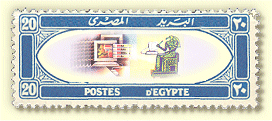PRESENT: Fifteen members attended; there were apologies for absence from four more.
The meeting opened with the Chairman greeting members and apologising because he had missed the first two meetings of the year while on his travels - to Saudi Arabia, Australia and China. He had also moved house recently and apologised again for having failed to bring any material to show at today's "ten sheets" meeting - his whole collection remains in the moving men's boxes.
The Chairman and Secretary both spoke of the forthcoming Spring Auction, which has finally been arranged in light of the arrival of masses of excellent and varied material from the estate of the late Peter Goodwin, which will be sold at both our auctions this year on behalf of Peter's grandchildren. More will be sold via the Sudan Study Group, thanks to our member Pail Grigg (ESC 476). The Chairman urged members to bid high and often!
The Secretary mentioned problems with the "room" we had at Stampex (see above), and the venue's non-committal reaction to our note of complaint, but it was agreed to give the venue another chance before changing our arrangements.
The Treasure and Secretary both mentioned that subscriptions, which were due on January 1, remained unpaid by some members. They would be lapsed from membership if still unpaid by next day.
The Librarian spoke of the back-copy QCs he had in stock, and it was agreed that these would be sold for 50p each plus postage. The Secretary passed to the Librarian some photographs of Matarangi meetings found among Peter Goodwin's material to be added to the Record.
The Editor expressed fears about the enormous increase in British postal rates due at the end of April and there was much discussion of the effect that this might have on postage for the QC. We shall review the position as it changes, and there is no present intention to make any change in subscription rates.
Several members brought material to show, including a "preview" of Peter Goodwin's material that will appear in the spring auction, and these will be dealt with briefly because the probability is that several will form QC contributions in the near future:
Tony Schmidt (ESC 198) showed important covers concerning mail exchanged between the Egyptian Post Office and foreign postal administrations, noting that no stamp was affixed between administrations but that a cover to Heidelberg in 1880 addressed to an individual was franked 2x1piastre with a Cairo Interpostal behind. Another Egyptian cover to France in 1904 was pre-printed with the Paris address, indicating a large amount of such correspondence.
Edmund Hall (ESC 239) asked when is a postcard not a postcard, and illustrated his question with printed matter, Imprimés endorsements, taxed cards with no message, untaxed cards with long messages, cards charged at concession rates long after the concession had ended ... a delightful confusion of routes and rates that could use a lot more elucidation.
Brian Sedgley (ESC 268) showed some outstanding material from the foreign consular post offices in Egypt, including an outstanding recent find in a Russian Office cover to Latakia with a clear 785 lozenge canceller for the stamp.
Paul Green (ESC 128) made a neat and varied display of an assortment of first-class covers, including a rare registered cover from the 1882 British occupation forces, addressed to Younger's Brewery in Edinburgh and franked with 3x2 1/2d stamps; and the return half of a 4m on 5m surcharged reply postal stationery card with a Wiesbaden CDS.
John Davis (ESC 213) displayed some rare and outstanding items from the earliest Military Post Office markings that followed the Force in Egypt (Army of Occupation), including the earliest recorded Military Post Office Alexandria CDS (31 Dec 1896) and a CDS showing Military P.O. rather than post office in full. a letter from Cairo to UK bears the manuscript "Active Service no stamps), but the Egyptian boxed-T tax mark triggered a 5d charge from the Foreign Branch of the Post Office in London, indicating that the letter came from an officer (2 1/2d rate) rather than a serviceman (1d rate).
Finally, Mike Murphy (ESC 240) showed a few of the 180 recently acquired charming and informative handwritten letters by Samuel Shepheard, of Cairo hotels fame, which formed the basis of the book by Michael Bird. The collection constitutes a first-person history of Egypt by an intelligent and curious observer at a crucial period, and we hope eventually to be able to place the letters on our website, with transcriptions of the hotelier's observations, as the "Shepheard archive".
|

